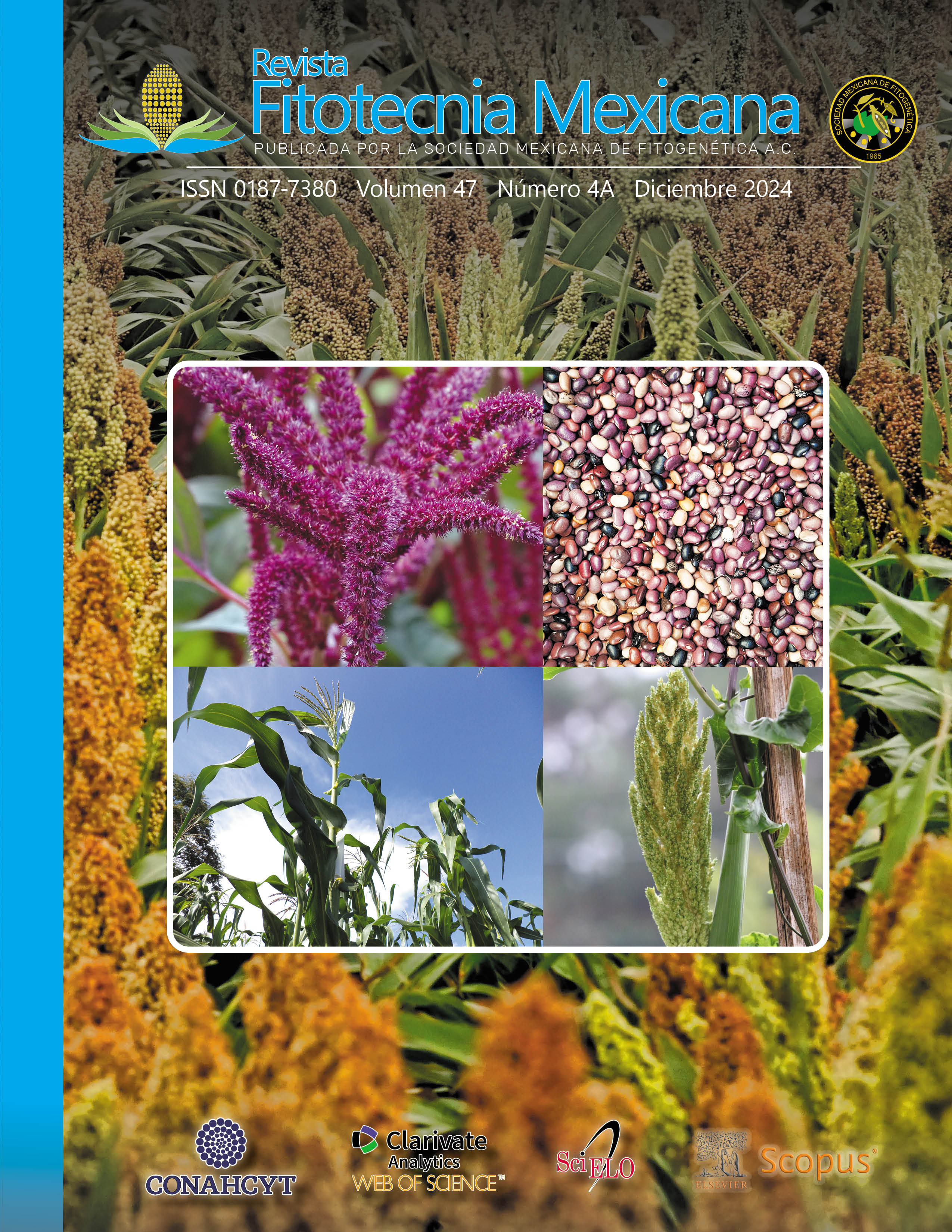PHENOL OXIDASES ARE RELATED TO THE DARKENING OF THE SEED OF MEXICAN BEAN VARIETIES
Main Article Content
Abstract
The grown of beans (Phaseolus vulgaris L.) is one of the main activities of the peasant economy and an important generator of income and rural employment. Beans are a staple in people’s diets because of their high protein and essential mineral content. However, many bean varieties show darkening of the bean during storage, which causes depreciation due to poor acceptance by consumers who are unwilling to pay a normal price and induces economic losses for farmers and marketers. Bean darkening is a complex process involving the action of several enzymes, including phenol oxidases. DNA molecular markers associated with darkening have had a heterogeneous behavior, being useful for some bean types, such as pinto, but not for others, such as May flower or June flower. The objective was to identify phenol oxidase genes associated with darkening of the bean testa of different bean types, whose expression levels are useful as markers to identify slow darkening genotypes. The expression profiles of eight phenol oxidases were studied by RT-PCR in seeds of four pinto bean varieties, two June flower and two May flower with different testa darkening behavior. It was shown that the accumulation of transcripts of diphenol oxidase laccase 1, diphenol oxidase laccase 2, diphenol oxidase laccase 3 and polyphenol oxidase 2 genes are associated with slow bean seed darkening.

